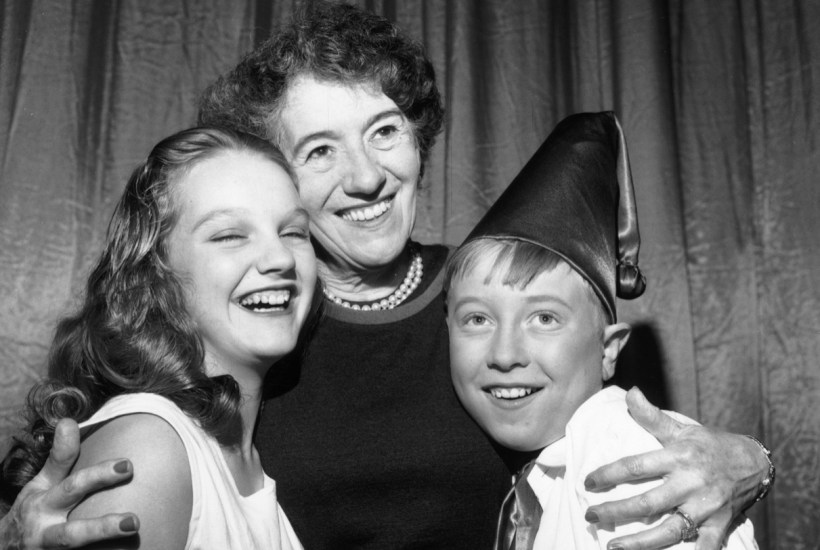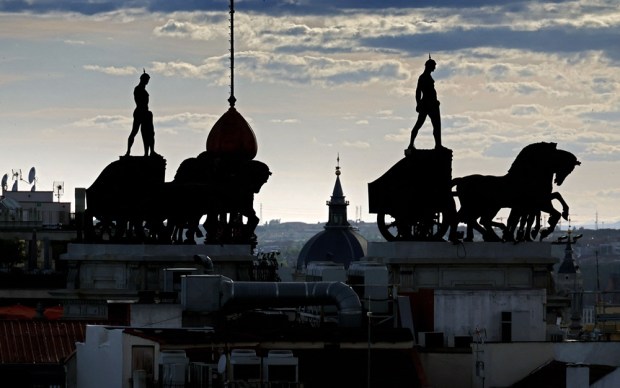It was really very satisfying to see that the publishers of Enid Blyton’s books have censored the text of The Famous Five and replaced it with wording that is more in keeping with the inclusive, egalitarian and non-judgmental nature of our times. For instance, they will remove ‘brown-skinned’ because it is an obvious racist slur and replace it with ‘suntanned’. The word ‘idiot’ will go because it is a slur on an innocent person’s intellectual challenges. And ‘sir’ will be banned because it is a miserable obeisance to the class-ridden, toxically masculine society in which we are still enslaved. Naturally, some hide-bound conservatives have drummed up a lot of confected outrage about these constructive steps to purify the Blyton books. But this reform was well overdue and it fits in well with the progressive approach of many public libraries, schools and universities in completely banning and removing morally and socially retrograde publications from their shelves before they do more harm. Moreover, judgmental and class-ridden as the works of Ms Blyton clearly are, there are many other suitable candidates for re-writing and, if necessary, complete expurgation and censorship. In fact, although history has given book-burning a bad name, it might be time to have what they call in intellectual circles a ‘conversation’ about restoring that age-old practice. If so, the Blyton publishers can take full credit for starting the ball rolling towards that reform.
Take Treasure Island, whose characters are all handicapped or seriously challenged in one way or another, but who, despite those afflictions, are denigrated and made objects of unrelenting fun. First, there is Long John Silver, casually dismissed as ‘one-legged’. Then we have Black Dog, whose very name shows he has serious mental problems; Billy Bones who has had two strokes; and little Jim Hawkins the cabin boy, trapped below decks in the moral slough of a toxic all-male environment. Lording it over everyone is Squire Trelawney, the perfect embodiment of rural capitalism and patriarchy. Then there is the parrot, snatched from the freedom it had to fly through the environment and condemned to sit on a pirate’s shoulder, mouthing inanities dictated by its cruel captor. Worse still, there is not a single mention of climate change, rising sea levels or dumping industrial waste in the ocean. Clearly, the expurgation of Ms Blyton’s books means that Treasure Island must be next for re-writing and probably censorship.
Then there is Gulliver’s Travels, a classic case of pygmy-shaming, where the tiny citizens of Lilliput are depicted as freaks with eccentric customs and none of the worldly skills and ability of the tall, white European who has come to live among them. Their favourite and particularly nasty pastime, which should not even be hinted at in a book for the young, is to force their captives into the weird sexual practice of bondage. Worse still, Lilliput is ruled by a king and must be one of the last refuges of monarchy, with not a sign of the move to enlightened republicanism that was gathering strength at the time. Why, the poor Lilliputians did not even have a Voice to express their advice to the king or parliament on long overdue social reforms.
But it is not only the so-called classics that should be re-written and censored: a lot of books and magazines are long overdue for a cleansing under the Blyton reforms to make them fit to read. Indeed, I can now see the corrosive influence they had on my own formative years. One of my then favourites was the Biggles series, all of which I poured over, breathing in what I now realise were the toxic fumes of racism, class distinction, war-mongering and oppression. A study I have undertaken of the entire Biggles series shows that there is not a single mention of a same-sex couple in a cockpit, a transitioning pilot, or a navigator undergoing a sex change. They are bereft of all the qualities of modern life that we now find so enriching and it is time they were either dragged into the 21st century by re-writing or banned altogether. As for racist films like Gone With The Wind, they should go the same way as the burning of Atlanta.
Looking at these issues I have wondered if my own literary diet when a child and a teenager could explain some of my adult shortcomings and I think they probably did. I had such fun lingering over the Lion Annual 1954 that I have before me now, as I write. But what an appalling effect it must have had on me to read tales of ‘redskins’ and ‘black-skinned Zulus’, of ‘their weird and terrible war-dance’, and their cattle that were ‘too healthy-looking to have been owned by natives. Obviously they had come from a white man’s settlement nearby’. And did I develop an unconscious bias against the harmless and peace-loving Soviet Union and its courageous but stunted people when I read how Chubby and Skinny helped MI5 and ‘unmasked an atomic spy’? Was that early brush with body image cemented when I moved on from Chubby and Skinny to Billy Bunter? Should I not have been more sympathetic and less judgmental of the innocent victim of the eating disorder that turned him into the Fat Owl of the Remove through no fault of his own? And was I turned into a racist as I read how a ‘small band of troopers’ fought off the ‘warlike Pawnee tribe’ of Texas?
It all explains a lot. I recognise now that I was twisted and perverted by the literature to which I was exposed as a youth. How lucky are the young of today who are protected from the descent into barbarism I experienced because I was exposed to such malign influences. But I take some comfort when I note that today’s youth will now be protected from the same vile influences to which I was subjected. And for that we should say ‘thank you’ to Enid Blyton’s courageous revisionist publishers.
Got something to add? Join the discussion and comment below.
Get 10 issues for just $10
Subscribe to The Spectator Australia today for the next 10 magazine issues, plus full online access, for just $10.
You might disagree with half of it, but you’ll enjoy reading all of it. Try your first month for free, then just $2 a week for the remainder of your first year.















Comments
Don't miss out
Join the conversation with other Spectator Australia readers. Subscribe to leave a comment.
SUBSCRIBEAlready a subscriber? Log in